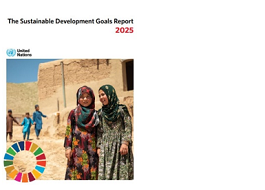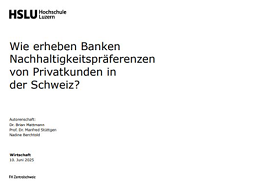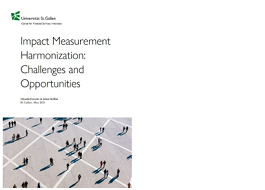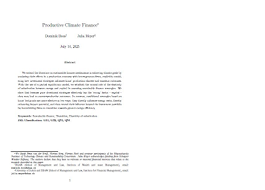| |
|
|
| |
|
|
| |
|
SSF Newsletter August 2025
|
| |
|
Plastic World
|
| |
|
Dear Sir or Madam,
|
| |
|
Many of us enjoy spending some days by the sea in the summer holidays. When strolling along the beach early in the morning you gain an impression of how much plastic waste is washed onto the shore every day. And this is just the visible part of plastic pollution. According to UNEP, 19-23 million tonnes of plastic waste is polluting aquatic ecosystems every year, and a recent academic study revealed that our soil contains almost 23 times more microplastic than the oceans. Hence, plastic is everywhere!
Over the past two weeks, the fifth round of negotiations on an international treaty to curb plastics pollution took place in Geneva. However, negotiations of the 183 nations ended in failure as oil and plastic producing nations were not willing to accept limitations of plastics production or the use of toxic chemicals in them. The responsibility to tackle plastic pollution is now back to individual states with effective reduction unlikely for years.
While in 2024, 160 financial institutions signed a statement to end plastic pollution, not much public investor action was recorded for this year’s negotiations. In light of global headwinds for sustainability goals it is even more important that investors raise their voice for decisive action against environmental pollution, not just for environmental reasons, but for improved risk management. As a result of the FINMA circular on nature-related risks many financial service providers start to look into such risks – plastic pollution being one of them.
|
|
| |
|
|
Kind regards
Sabine Döbeli
SSF CEO
|
| |
|
|
|
| |
|
|
| |
| |
| |
|
SSF activities at a glance
|
| |
|
| |
|
Register for the SSF/SIX/McKinsey Investment Opportunities in Carbon Markets
|
| |
|
Join us on 26 August 2025 for a conference with McKinsey and SIX on the future of carbon markets. Hear from leading voices across industry and finance including Holcim, Mammut, South Pole and more on how carbon markets can drive innovation, credibility and investment in the transition to a sustainable economy. Find more information and register here.
|
| |
|
|
|
| |
| |
|
SSF/GIIN/SPII Webinar: Impact Investing in Healthcare
|
| |
|
The second session of the 2025 Impact Investing Webinar Series, co-hosted by SSF, GIIN and SPII, explored how finance can drive health equity and measurable social outcomes. The session featured insights into the GIIN’s Healthcare Impact Benchmark and QALY tool, as well as diverse investment perspectives from the GIIN, the UBS Optimus Foundation and GENUI. Read the summary and view the recording here.
|
| |
|
|
|
| |
|
|
| |
| |
|
Regulatory and market news
|
| |
|
| |
|
Swiss News
- Despite general support during the consultation phase, the Federal Council has decided to temporarily pause the revision of the regulation requiring companies to report on climate-related matters. Implementation of this regulation will be delayed until the revised reporting provisions and developments in the EU’s regulatory framework are clearer.
- The Swiss Federal Council has expressed regrets about the failure to reach an international agreement on plastic pollution and states that it will continue to work towards strengthening international cooperation on this issue. The government further expresses the intention press ahead with its national measures to combat plastic pollution.
European News
- The EU has released a new roadmap for nature credits, outlining a pilot project (2025–2027) to establish and promote nature credit markets, including those focused on peatland restoration, through public seed financing and early derisking initiatives. The aim of this initiative is to establish a reliable and scalable voluntary certification system to encourage private investment in biodiversity-positive activities.
- The TNFD submitted an omnibus review to the EU, recommending that ESRS E2–E5 be consolidated into a single nature-related standard under the CSRD. This would simplify disclosures and align them with the TNFD’s LEAP framework, making reporting more practical and science based.
International News
- The International Court of Justice (ICJ) has issued a groundbreaking advisory opinion requiring wealthy nations to fulfil their climate commitments. According to the ICJ, they may else face compensation claims from countries impacted by climate change.
- ICMA has released new guidance on nature-focused finance with a Practitioner’s Guide to Sustainable Bonds for Nature, supporting the issuance of nature-themed green bonds. The update also includes revisions to the Green and Social Bond Principles and tools to help structure nature-positive projects.
- The UK government has announced that it will not be developing a domestic green taxonomy. This is due to limited public demand, as well as the government's decision to prioritise other policies that will accelerate investment in the net-zero transition and curb greenwashing. This decision forms part of the Treasury’s 10-year growth strategy for the UK financial sector.
Market News
- The recently updated SVVK-ASIR exclusion list highlights companies that may be excluded from investment due to violations of international norms, such as those relating to human rights or environmental standards.
- BNP Paribas' 2025 ESG Survey, based on responses from 420 institutional investors across 29 regions, highlights the increasing adoption of integrated ESG strategies that consider climate, biodiversity and social impact together. Despite geopolitical tensions, almost half of respondents say that their commitment remains unchanged, and most expect sustainability momentum to continue until 2030.
|
|
| |
|
|
|
| |
- Ethos has published the “Fundamentals of Sustainable Finance” course on its online education platform. Designed for pension fund trustees and administrators, the course consists of modules lasting approximately two to three hours, which are available in French, German and English. It empowers participants to deepen their understanding of sustainable investment at their own pace.
|
|
| |
|
|
|
|
|
| |
| |
|
SSF and sustainable finance in the media
|
| |
|
|
|
|
|

|
| |
|
The Sustainable Development Goals Report 2025
|
| |
|
The UN's Sustainable Development Goals Report 2025 reveals that the world is not on track to achieve the 2030 goals and urges urgent action in six key areas: food systems, energy, digital connectivity, education, employment and social protection, and climate and biodiversity. Although significant challenges persist, the achievement of universal electricity access in 45 countries demonstrates the potential for swift progress.
|
|
More >
|
| |

|
| |
|
Wie erheben Banken Nachhaltigkeits- präferenzen von Privatkunden in der Schweiz?
|
| |
|
The HSLU study found that, although formats and depth vary widely, Swiss banks have integrated ESG preference assessments into client advisory processes. Banks indicated that between 20-90% of their clients have ESG preferences. While most institutions currently meet SBVg guidelines, upcoming stricter sustainability definitions in 2026 will present new implementation challenges.
|
|
More >
|
| |
|
|

|
| |
|
Impact Measurement Harmonisation: Challenges and Opportunities
|
| |
|
The report highlights that inconsistent impact measurement standards hinder comparability and trust in impact investing. After reviewing major frameworks such as IRIS+, HIPSO and SDG Indicators, it was found that there were overlaps, but also significant gaps in definitions and reporting. To address these issues, the report proposes six steps: defining core metrics; aligning sector-specific issues; mapping frameworks; standardising reporting formats; coordinating the development of new metrics; and leveraging AI to interpret and contextualise data.
|
|
More >
|
| |

|
| |
|
Productive Climate Finance
|
| |
|
The paper analyses the impact of sustainable finance strategies on firms' production and emissions. It demonstrates that this impact varies depending on how easily firms can substitute capital for energy. While pure divestment can be counterproductive, financing conditions linked to a company’s carbon footprint are more effective as they directly increase the cost of carbon-intensive energy and encourage efficiency improvements that extend beyond the investor’s portfolio.
|
|
More >
|
| |
|
|
| |
|
Would you like to find out more about recent developments in sustainable finance and members-only SSF activities? SSF members receive access to additional resources. Join our growing community to profit from it.
|
|
| |
|
| |
|
Kind regards
The SSF Team
|
| |
|
|
|
| |
| |
|
Already a member or partner? Make sure you are featured on our website. Get in touch with us to upload your member or network partner profile now.
Interested in joining our network of members and partners? > Learn more
|
|
| |
|
| |
|
SWISS SUSTAINABLE FINANCE
|
|
|
| |
|
|
| |
|
|
| |
|
|
| |
|
|
| |
|
|
| |












